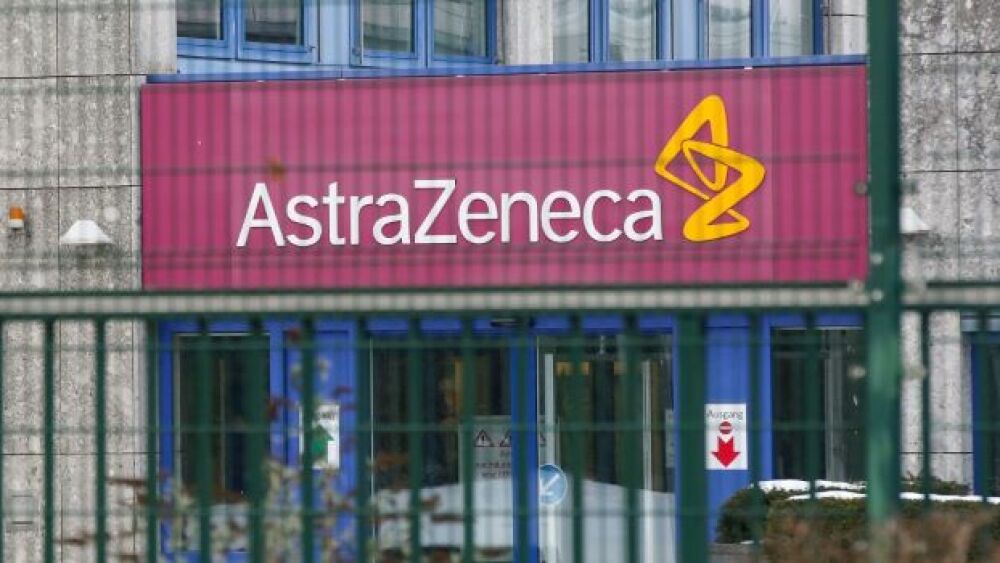AstraZeneca dosed the first patient in a Phase II portion of an ongoing trial assessing a PD-1/TIGIT bispecific antibody, triggering a $7.5 million milestone payment to partner, Compugen.
Courtesy Bodo Marks/Picture Alliance via Getty Images
AstraZeneca dosed the first patient in the second phase of an ongoing trial assessing a PD-1/TIGIT bispecific antibody in patients with stage III unresectable or stage IV non-small cell lung cancer.
The trial is a Phase I/II open-label dose escalation and expansion study to evaluate AZD2936 in advanced or metastatic NCSLC patients.
The study, which includes 147 patients, will evaluate the safety, pharmacokinetics, pharmacodynamics and efficacy of the investigational drug and is expected to be completed by July 2025.
The dosing of the first patient with AZD2936 triggered a $7.5 million milestone payment from AstraZeneca to Israel-based Compugen Ltd.
AZD2936 was derived from Compugen’s COM902, a clinical-stage anti-TIGIT antibody. This marked the second milestone payment to Compugen. Anat Cohen-Dayag, Ph.D., president and CEO of Compugen told BioSpace the Fc effector function antibodies deplete CD8+ T cells, which are crucial for driving immune responses.
“We believe COM902’s properties, including its high affinity and superior binding compared to other anti-TIGITs tested in a preclinical setting, were key attributes that contributed to AstraZeneca’s decision to obtain rights for the development of bispecific products and further advancement of AZD2936 to the clinic,” she said.
Compugen and AstraZeneca’s developmental subsidiary, MedImmune, forged a partnership to develop bi-specific and multi-specific immuno-oncology antibody products in 2018.
Compugen granted AstraZeneca a license to its monospecific antibodies that bind to TIGIT. Under the terms of that deal, AstraZeneca was responsible for R&D activities and any commercial events, should the drug receive regulatory approval.
While AstraZeneca aims AZD2936 at NSCLC, Compugen will evaluate the parent molecule, COM902, in a Phase I study in other solid tumors.
The deal didn’t include bispecific and multi-specific antibodies that also bind to PVRIG, PVRL2 or TIGIT, according to Compugen.
Compugen’s lead product candidate is COM701, an anti-PVRIG antibody, for the treatment of solid tumors. COM701 is currently in Phase I studies as both a monotherapy and in combination with other products.
Earlier in November, Compugen announced COM701 demonstrated anti-tumor activity following the blockade of PVRIG, thus generating anti-tumor activity that was supported by immune activation in the TME in MSS-CRC patients, according to the company.
Cohen-Dayag said AstraZeneca’s advancement of AZD2936 into Phase II provides Compugen with confidence in the therapeutic potential of COM902.
The milestone payment will also support operations and the company’s pipeline, including the clinical studies being planned in MSS-CRC and platinum-resistant ovarian cancer, she said.
Both the parent molecule and AstraZeneca’s mid-stage asset were engineered to reduce the Fc effector to enhance anti-tumor activity.
Compugen stands to benefit financially from the 4-year-old agreement if the licensed asset leads AstraZeneca to develop additional bi or multi-specific products that bind to TIGIT.





